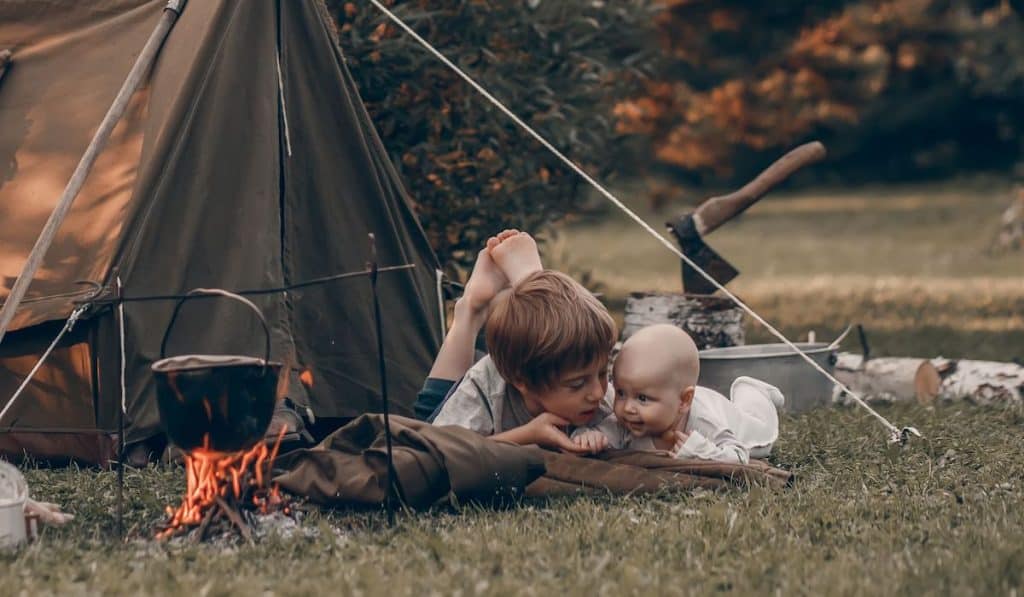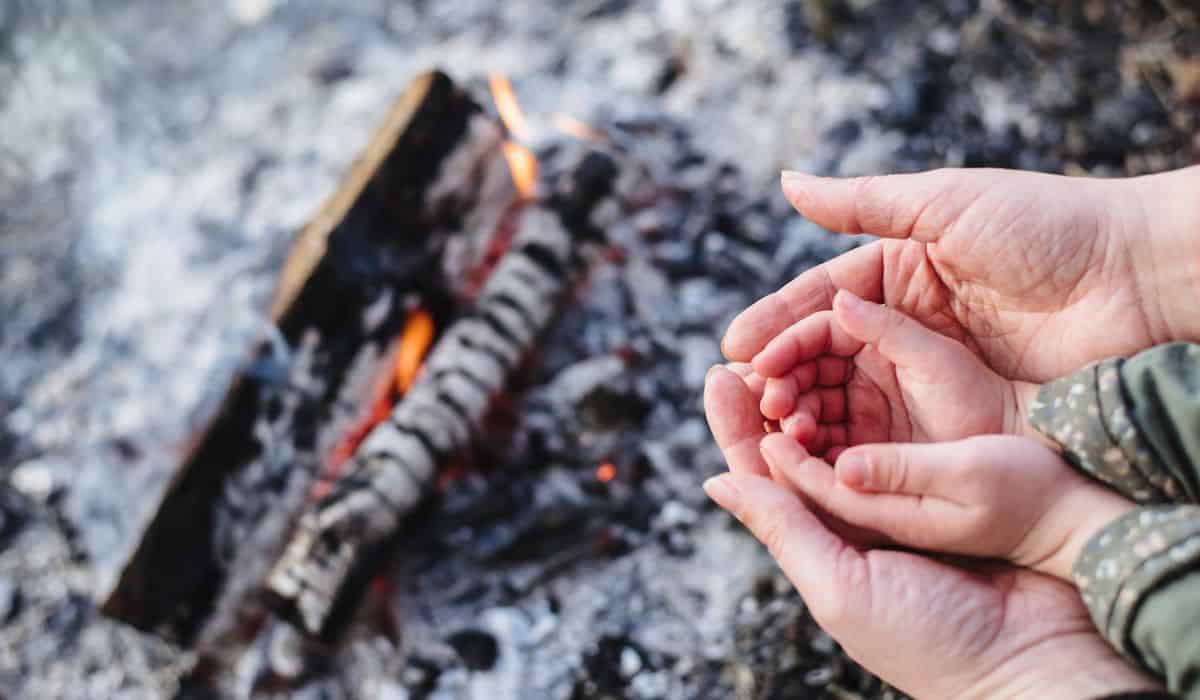Spring is coming, the days are getting warmer, and you can’t wait to start camping again. You might have children who have expressed interest in camping, or you might have a baby you want to bring camping with you.
With all the other hazards you’ve considered, have you thought about the side effects of campfire smoke? Can babies and young children be around campfire smoke?
As long as you understand the risks of inhaling campfire smoke and you are safe about it, babies and young children can be around campfire smoke. Babies and children under 14 are most vulnerable to the effects of smoke because they are still developing and they breathe in more air than adults do relative to their size.

The Scary Truth
We’ll start with the scary stuff first so you can understand the risks of campfire smoke.
Babies and children under 14 are most vulnerable to the effects of smoke because they are still developing and they breathe in more air than adults do relative to their size.
When smoke is inhaled, pollutants are inhaled too and can lodge in your child’s lungs and enter the bloodstream.
This can cause your children to develop ear infections, asthma, and bronchiolitis.
Sitting around a campfire can cause ear damage completely unrelated to the smoke. Adults tend to drink around campfires, or play music, and the more fun they have the louder they tend to get. If you’re camping during a holiday there might also be fireworks going on.
If you want to learn more about camping, check out the complete beginner’s guide to start!

Can You Sit Around a Campfire If You’re Pregnant?
If it’s so dangerous for babies and children to be around campfire smoke, does that mean pregnant women also shouldn’t sit around a campfire?
Yes, the effects of particulate pollution from smoke inhalation can begin during pregnancy. This means that if you are sitting by a campfire while pregnant, your baby can be born with ear infections, asthma, and bronchiolitis mentioned above.
When you’re breathing in smoke, you are also breathing in less oxygen, and therefore your baby is getting less oxygen. When your baby receives insufficient oxygen, the tissue and cells in their brain can begin to die.
Oxygen deprivation can cause so many things; seizures, cerebral palsy, learning disabilities, the inability to blink, and significant delays in development.
Check out our Top 11 Tips for camping with babies here
The Good News
This all sounds terrible, but there is a bright side. It’s called common sense.
These effects are from constant exposure to smoke inhalation. Woodburning fireplaces, bush fires, or being near a smoker can cause problems, but Spending a night or two around a fire where you burn untreated wood in a very well ventilated area isn’t going to cause the damage mentioned above.
If you want to spend a night around the campfire with a baby, don’t sit directly in front of the fire where the smoke can blow directly at you. If the smoke does start blowing your way, move out of the way.
If you’re pregnant the same thing applies. You should have someone else build the fire for you so you don’t have to blow on small flames and inhale all the smoke that comes with starting a fire.

If there is nobody to make a fire for you, or the smell of smoke is starting to make you feel sick (hello heightened pregnancy senses!), move away from the fire for a while until you feel better.
If you’re worried about the loud noises around a campfire, or even in general, you should invest in a good pair of noise-cancelling earmuffs for your baby or child. Blocking out the sound of loud music, shouting, or even fireworks will save your child’s hearing.
What to Watch Out For
If you’re around a campfire, and you’re being safe, you should still watch out for symptoms of excessive smoke inhalation. If you have children who start experiencing these symptoms move them out of the smoke’s reach for a while.
As with any illness symptoms, if they worsen or continue for longer than a couple of hours, talk to your doctor.
The symptoms you should watch out for are:
- Coughing or wheezing
- Itchy or sore eyes
- Runny nose
- Sneezing
- Sore throat
All of these symptoms should cease almost immediately after being removed from a smokey area, but you must make sure any unusual symptoms don’t persist.
If your child has a runny nose normally, and their nose is still running a day after playing in campfire smoke, you probably don’t have anything to worry about besides how many tissues you need to stock up on.
Wrapping It Up
The side effects of smoke inhalation are terrifying if you’re a parent. While it is important to keep your children safe, there is no reason why you and your little ones can’t enjoy a night by a campfire.
As long as you use common sense, don’t let your children sit in the smoke, don’t burn treated wood, or burn in an area with no ventilation, you have nothing to worry about.
So grab those roasting sticks, a big bag of marshmallows, and a package of hotdogs and enjoy your night around a campfire with your family.




